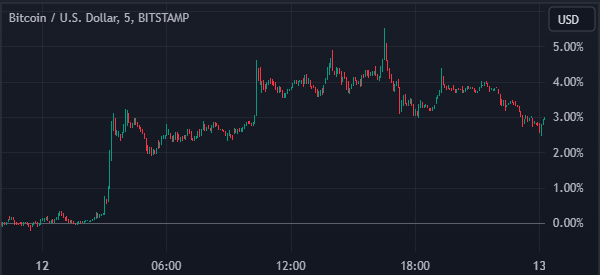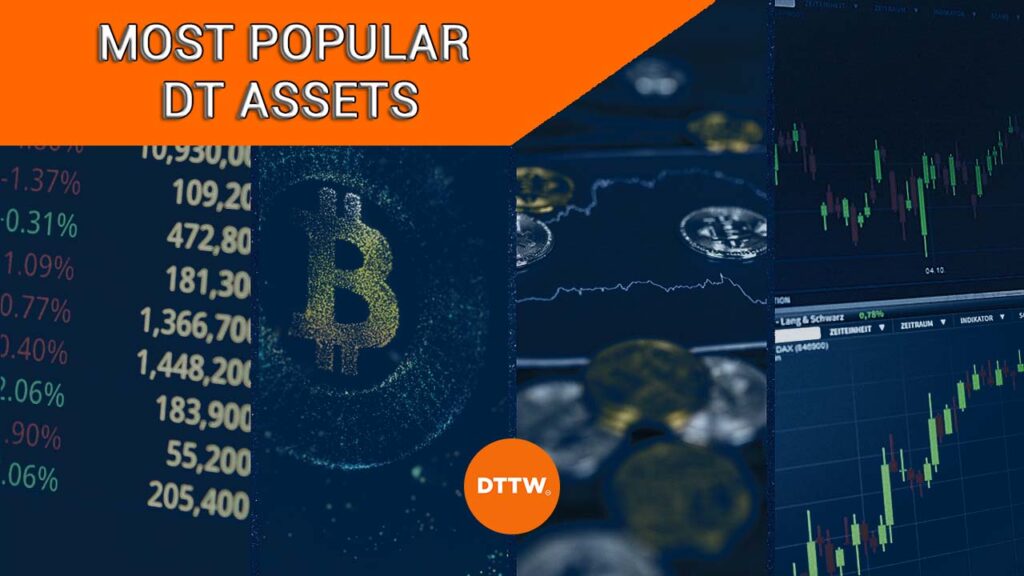Day-trading speculative assets is a widespread avenue for individuals seeking ventures to generate revenue quickly. This approach assumes one will monitor and examine rapid price movements, analyzing real-time data, indicators, and chart patterns to know when to make entries or exits into a specific market.
Selling and buying assets to trade is done on the same day, and there are no complex rules for holding them until disposal. As long as the trader doesn’t enter the following day after the purchase with these holdings in their portfolios, it counts as day trading.
Compared to long-term holding investments, those stored for several seconds or hours can be more easily purchased through specialized platforms, assuming the options are well-understood.
Table of Contents
Stocks
Stocks, or more precisely, short-term stocks, are investments that aren’t intended to stick around for too long with the investor. These can represent financial investments that are bought and sold constantly and can take many forms.
For instance, you can invest in certificates of deposit, which are documents released by financial organizations against a significant deposit.
If you lack experience, you may find trading stocks overwhelming. You can start your journey with liquid ones instead of penny stocks, as they’re witnessing lower volatility. Investor sentiment impacts penny stocks; even the most insignificant news can cause price slumps.
If you need more familiarity with this trading method, you can seek out platforms that allow you to gain insight into the world of stocks by opening accounts and simulating trading.
You don’t need to invest money, but play games where you act as an investor, get stocks, watch how their trajectories change, and sell when your gut tells you one will underperform.
The financial sector is abundant in investment options to use for day trading; some options better suit experienced traders, whereas newcomers can easily approach others to trading.
A very important factor in your decision-making process is what resources you have and want to use to keep updated with the factors impacting their prices.
Cryptocurrency
Cryptocurrencies are some of the most widely used assets for day trading, given their volatile nature and capacity to go up and down rapidly.
Exchanging fiat money for cryptocurrency, holding it for a short time, and then selling it are facilitated by cryptocurrency exchanges such as Binance, which provide user-friendly, intuitive platforms where orders are sent and fulfilled in a matter of seconds.
If you want to stay updated on how the price of Bitcoin or other cryptocurrencies changes, all you have to do is access a similar platform. You’ll have real-time charts that give you a glimpse of how your eyed asset has performed over a certain period of time.
Unlike other assets, such as stocks or bonds, they are known to jump aggressively in value. It’s uncommon for any other type of asset to register spikes of, say, 10% in value like Bitcoin, Ethereum, or other crypto assets are capable of.

This inherent feature of these topsy-turvy investments presents the opportunity to make quick money that can be further reinvested in other digital coins.
Cryptocurrencies are also highly speculative investments, so if they’ve caught your attention, you need to be aware you’ll be taken on a rollercoaster.
Crypto prices are influenced extensively by investors’ sentiment about them, what assets are accumulated by prominent investors, how they’re reflected in the media and other factors. Supply and demand decide how prices will move, and governments don’t have control over these aspects.
Day traders are naturally drawn by significant fluctuations in their assets’ value, which is logical. You don’t want an asset that stays dormant in your portfolio and only changes over time.
When you decide to venture into this and other markets on this list, one of the most important things is to do plenty of research and ensure you’re educated enough. These assets aren’t going anywhere, so thoroughly understand your options and what you choose to pour money into.
Forex
Another popular method to generate quick revenue, taking advantage of volatile prices, is Forex, also known as trading foreign currency. Deciding on this type, you’ll practically buy and sell pairs of currencies.
For instance, you can change the Canadian Dollar (CAD) against the US Dollar (USD), which is synthesized as “CAD/USD”. You will open and close positions within the same day and have to choose which currency you believe will perform better at the end of the day and how the competition will unfold.
In Forex trading, you can buy and sell a currency pair short, meaning that when you believe a currency will rise on exchange markets, you invest in it. Consequently, when you think a currency will fall, you sell it.
For this option, you must choose a brokerage service, see if their offerings match your trending style, understand the terms and conditions, and assess their policies.
Pay attention that the influencing factors behind sharp currency’ changes are various, so you’ll have to constantly keep yourself in the loop about numerous aspects of the political and economic stage of the world, as well as monitor the assets’ movements.
You’ll need to develop a profound knowledge of the fundamentals of Forex trading and understand the dynamics between currencies.
Futures contracts
As the name suggests, futures contracts are a category of assets that permit the investor to pour money into a speculative instrument at a later date, depending on what the closed contract stipulates.
These enable the investor to take advantage of the price movements of their assets, and in the U.S., they’re monitored by the Commodity Futures Trading Commission (CFTC). They are known as derivatives because their price is constantly tied to the underlying asset’s value.
Day trading futures contracts can apply to a wide range of assets, such as cryptocurrencies, stock indexes, commodities, bonds, gold, and oil, to name a few. Out of all these options, some assets are tradeable around the clock, and you can buy and sell them anytime you want, unlike stocks on certain exchanges.
The chosen provider, whether it’s another trader or a company, is obliged to fulfill your order at the pre-established price sometime in the future, according to the terms of your agreement. The latter states different details, like what specific assets you’ll invest in, cash settlement, and other conditions.
These are essential things to consider because they make trading a little more time- and effort-consuming than cryptocurrencies. On the other hand, like with crypto, trading futures is about speculating on price movements.



